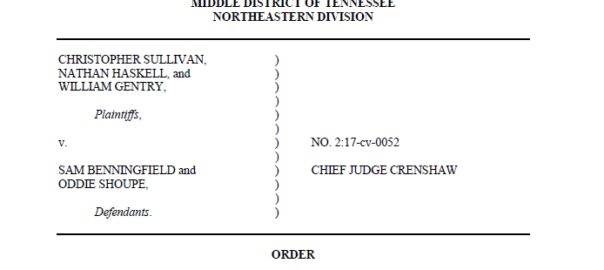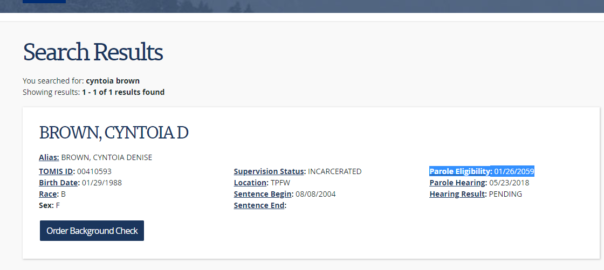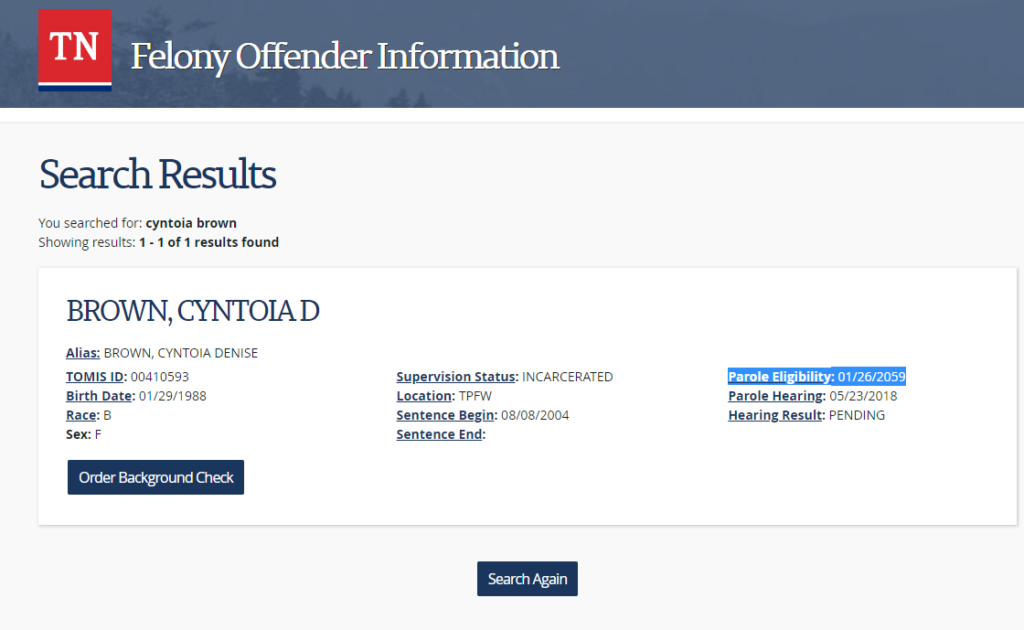“The determination of whether an offense is eligible for expunction is an obligation entrusted to courts, not the TBI[,]” the Tennessee Supreme Court has ruled. Accordingly, “the TBI lacked authority to refuse to comply” with a final and unappealed expungement order that no statute “authorize[d] the TBI to disregard or revise[.]” The Tennessee Supreme Court’s unanimous opinion powerfully vindicates expungement rights under Tennessee law, the right of Tennesseans to sue the government for acting illegally, and citizens’ right to demand that the government comply with court orders.
The case arose out of a years-old expungement order that was entered by agreement of a District Attorney and approved by a judge following a diversionary plea agreement. When such an expungement order is entered, Tennessee law obligates the Tennessee Bureau of Investigation to process it within sixty days of receipt. In lieu of complying with the court’s order, though—and at the urging of Tennessee Deputy Attorney General Scott Sutherland and other misbehaving members of his office—the TBI opted to violate it, believing that the order was wrong. “But no statute grants the TBI authority to independently review and decline to comply with a final expunction order it considers erroneous,” the Tennessee Supreme Court explained. Further, as the Plaintiff noted, “willfully disobeying a final court order at the urging of counsel is ‘lawless behavior that would land any other contemnor in jail and would subject any other attorney to professional discipline.’”
Along the way to reaching this holding, the Tennessee Supreme Court forcefully affirmed Tennesseans’ rights to sue the government for acting illegally. As relevant to the case, in 2018, the Tennessee General Assembly enacted a critical new statute—Tennessee Code Annotated § 1-3-121—that established the right of “any affected person” to sue the government “regarding the legality or constitutionality of a governmental action.” In full, Tenn. Code Ann. § 1-3-121 provides that:
“Notwithstanding any law to the contrary, a cause of action shall exist under this chapter for any affected person who seeks declaratory or injunctive relief in any action brought regarding the legality or constitutionality of a governmental action. A cause of action shall not exist under this chapter to seek damages.”
Despite the clarity of this statute, the Tennessee Attorney General’s Office spent the next several years arguing in transparent bad faith that the statute was meaningless; that it did not mean what it said; and that it did not permit any lawsuits to be filed against state government at all. But “[t]he General Assembly clearly and unmistakably waived sovereign immunity by enacting Tennessee Code Annotated section 1-3-121,” the Tennessee Supreme Court explained, and “[t]he plain meaning of this text expressly recognizes the existence of causes of action ‘regarding the legality or constitutionality of a governmental action’ that seek declaratory or injunctive relief.” Accordingly, the Tennessee Supreme Court ruled that the Plaintiff’s lawsuit against the TBI and its Director for willfully violating a court order was permissible, and it ordered a lower court to grant the Plaintiff’s claim for injunctive and declaratory relief, which the court had to that point denied.
“We appreciate the Tennessee Supreme Court unanimously vindicating our client’s expungement rights,” said Horwitz Law PLLC attorney Daniel A. Horwitz, who represented the Plaintiff along with co-counsel Lindsay Smith. “However, we are disturbed that the Tennessee Attorney General’s Office had to be reminded by a court yet again that its job is to uphold the law, not to encourage government officials to violate it. Having engaged in lawless behavior that would land any other contemnor in jail and that would subject any other attorney to professional discipline, we hope that Director Rausch and Attorney General Slatery won’t need to be reminded again.”
The TBI and its Director, David Rausch—who asserted the government’s entitlement to violate court orders—were unsuccessfully represented in the case by attorneys Rob Mitchell (BPR 32266), Miranda Jones (BPR 36070), and Mallory Schiller (36191) of the Tennessee Attorney General’s Office. In advance of the Tennessee Supreme Court’s unanimous reversal, they opposed appellate review in the case on the basis that “there is no probability of reversal.” Contact them at @TNattygen.
The Parties’ oral argument in the case can be viewed here. The Plaintiff’s briefing in the case is linked below.
Principal Brief: https://horwitz.law/wp-content/uploads/Principal-Brief-of-Appellant-Stampfiled.pdf
Reply Brief: https://horwitz.law/wp-content/uploads/Appellants-Reply-Brief.pdf
Read the Tennessee Supreme Court’s unanimous opinion in Recipient of Final Expunction Order in McNairy County Circuit Court Case No. 3279 v. David B. Rausch, Director of the Tennessee Bureau of Investigation, and Tennessee Bureau of Investigation, authored by Justice Sharon G. Lee, here: https://www.tncourts.gov/sites/default/files/recipient.of_.finalexp.3279.opn_.pdf







